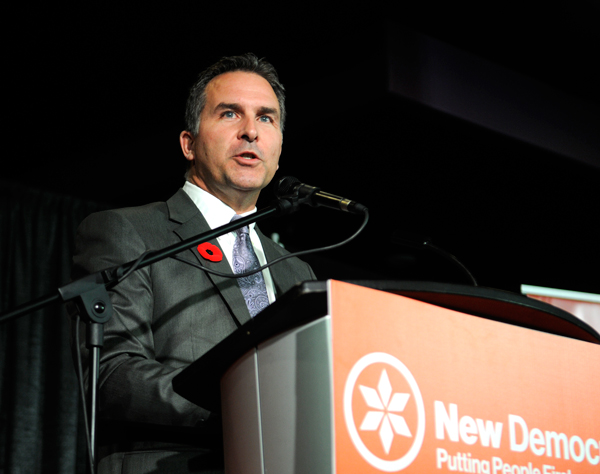
Saskatchewan’s teachers will be moving forward with job action as of Thursday.
The Saskatchewan Teachers’ Federation (STF) announced Monday that teachers would cease the supervision of extracurriculars such as sports or theatre productions and that they wouldn’t volunteer for supervision more than 15 minutes before or after school.
Recess or bus supervision will still be conducted within that timeframe, but nothing will be done outside of the school day plus the 15 minutes at the beginning and end.
The sanctions were agreed to in a vote held on Feb. 10 and 11 of this year, with 90.2 per cent voting in favour of sanctions. The voter turnout was over 95 per cent.
The STF and the province have been in negotiations for the past 10 months as they try to flesh out a new contract. The biggest issue isn’t wages, but rather class size and composition. Teachers say classes are too big and too complicated without more supports, while the Sask. Party has argued the issue is better addressed outside of the collective bargaining process.
The two sides still remain far apart.
In a press release, the STF said the government remains “unwilling” to provide adequate support for students.
“It’s time to take a stand and do something that causes the government to take notice,” said STF president Patrick Maze.
“It’s regrettable to have to do something like this, but realistically, what we’ve been doing so far hasn’t worked. The government was well aware that we had a sanctions vote. It’s not like we were in a rush to put something in place. We waited a couple of weeks … to conduct sanctions.”
Saskatoon Secondary Schools Athletic Directorate (SSSAD) athletic consultant Jud Heilman said the body that oversees high school athletics in Saskatoon did not have an immediate comment.
“We are in the midst of planning and seeing what unfolds over the next couple of days,” Heilman said.
Nine months of negotiations between the two sides ended in an impasse that conciliation talks failed to break. A report published last month found there was still far too much distance between the two sides to find a solution. At present, there are no plans to return to the table.
The two sides met Thursday but were unable to come away with a deal.
Addressing reporters in Regina on Monday, Wyant said the government had come forward with a proposal on class size and complexity and anew mandate but that teachers were refusing to return to the table.
“They’ve walked away from the bargaining table, they’ve walked away from conciliation and now they’re walking away from kids,” Wyant said.
During Monday’s question period, Premier Scott Moe joined the call for the union to return to the bargaining table.
“We’d invite Mr. Maze and the STF back to the table so they can find out precisely what that mandate is,” Moe said.
Moe promised and delivered $30 million in additional funding for education last year, which only partially offset a $54-million cut from the 2017-2018 budget.
Maze, though, didn’t see the offer as sufficient.
“They offered $5 million of government money in each of five years going forward. The meeting prior we had been discussing $100 to $120 million,” Maze said, adding that the Saskatchewan School Boards Association indicated the $120 million figure would be more appropriate.
“We’re talking fairly substantial needs in the system, but we’re talking a provincial education system where the government doesn’t seem to have the resolve to get involved and fix it. I don’t think ($5 million) would be enough to fix the problems in one school division, let alone 27 right across the province.”
Prince Albert Northcote MLA Nicole Rancourt said she knows teachers are concerned about the impact of sanctions, but what they’re doing is ultimately for the kids.
“They’ve seen how the cuts to education have impacted their ability to provide the education they want to for these youth. That’s why they’re sticking to their guns, making sure classroom size and composition are addressed,” she said.
Rancourt said that could mean things like school trips and big sporting events like Hoopla might not go forward this year.
“The teachers feel their hands are tied behind their back,” she said.
“They feel bad this is happening but this is because the government is not stepping forward to make sure needs are being met in the education system.”
The government had also formed a committee to study the issue. That committee was set to report back before the provincial budget, but now it looks like that won’t be the case.
“I get the point that there will be some pain with the withdrawing of extracurriculars and there will be the cancellation of some events, and that’s regrettable,” Maze said.
“At the same time, our main function is to teach kids in the classroom. When we can’t do that, everyone should take notice.”
Local teachers’ association president Ted Zurakowski declined to comment, referring questions to Maze.
Both the Saskatchewan Rivers and the Prince Albert Catholic School Division had board of trustee meetings set for Monday night. The Sask.Rivers School division acknowledged the meeting and the bargaining, as well as the sanctions and the government’s response.
Further details weren’t available at press time. For more from the meetings, please see tomorrow’s Daily Herald.
–With files from the Regina Leader-Post and Saskatoon StarPhoenix.

